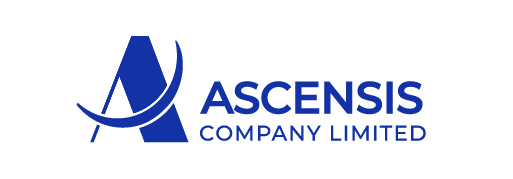Understanding the complexities of work authorization across different African nations is crucial for both employers and professionals
The expansion of mining operations across Africa has created unprecedented opportunities for both companies and professionals. However, navigating the complex landscape of work permits and immigration requirements remains a significant challenge for organizations deploying international talent. Based on Acensis HR's extensive experience facilitating cross-border assignments, we offer this comprehensive guide to understanding the current work permit environment.
Ghana's Evolving Work Permit Framework
Ghana, as a major mining hub, has recently implemented significant changes to its work authorization process. The Ghana Immigration Service, in coordination with the Minerals Commission, has established a specialized category for mining professionals that streamlines the application process while maintaining strict qualification requirements.
Key aspects of Ghana's current work permit system include:
- Quota System: Most mining operations must maintain specific ratios of Ghanaian to expatriate workers, typically requiring 80-90% local employment
- Skills Transfer Requirement: Work permits now require documented plans for knowledge transfer to local professionals
- Duration Limitations: Initial permits typically last 12 months with possible extensions for up to 36 months total
- Educational Verification: Enhanced verification of educational credentials through approved channels
- Medical Clearance: Expanded health screening requirements including industry-specific assessments
"Companies must begin the work permit process at least three months before the anticipated start date," advises Samuel Owusu, Compliance Manager at Acensis HR. "The most common reason for delays is incomplete documentation of qualifications and experience."
For mining professionals seeking positions in Ghana, having educational credentials pre-verified through the National Accreditation Board can significantly accelerate the process.
Regional Harmonization Efforts
The Economic Community of West African States (ECOWAS) has made progress toward standardizing work authorization for professionals within member countries, though implementation remains inconsistent. Currently:
- Citizens of ECOWAS member states enjoy theoretically simplified procedures
- Practical implementation varies significantly by country
- Professional qualification recognition remains country-specific
- Tax treaties between member states affect employment structures
"While the framework for regional mobility exists on paper, navigating the practical requirements still requires country-specific expertise," notes Fatima Diallo, West Africa Immigration Specialist at Acensis HR. "Companies are best served by establishing relationships with authorities in each jurisdiction where they operate."
For professionals from ECOWAS member states, maintaining comprehensive documentation of educational qualifications and work history can significantly streamline the application process.
Emerging Trends in Mining Work Permits
Several important trends are reshaping the work permit landscape across major African mining regions:
- Increasing Localization Requirements: Countries including Tanzania, Zambia, and Ghana are strengthening requirements for local employment and knowledge transfer
- Digital Processing Systems: Several countries have implemented online application platforms, though paper documentation is still typically required as backup
- Enhanced Security Verification: Biometric requirements and background check procedures have become more rigorous
- Remote Work Considerations: The rise of remote work has created new compliance challenges regarding virtual work across borders
- COVID-19 Legacy Requirements: Additional health documentation and vaccination requirements remain in place in many jurisdictions
"The regulatory environment continues to prioritize local workforce development while recognizing the need for specialized international expertise," explains Kofi Mensah, Regional Compliance Director at Acensis HR. "Companies that demonstrate genuine commitment to skills transfer find greater flexibility in the process."
Country-Specific Considerations
While regional patterns exist, significant differences remain between major mining countries:
Tanzania has implemented one of the more stringent localization programs, requiring detailed succession planning for any expatriate position with financial penalties for non-compliance with localization targets.
South Africa's critical skills visa provides a pathway for mining professionals in designated specialties, but the qualification process has become increasingly rigorous with enhanced verification procedures.
DRC maintains separate systems for short-term technical assignments versus long-term expatriate positions, with distinct documentation requirements for each category.
Namibia has introduced a points-based system that evaluates both individual qualifications and employer compliance history when considering work permit applications.
Strategic Approaches for Employers
For mining companies deploying international talent, Acensis HR recommends several strategic approaches:
- Forward Planning: Begin work permit processes at the earliest possible stage of project planning
- Documentation Management: Maintain comprehensive credential libraries for mobile employees
- Local Partnerships: Establish relationships with relevant authorities before urgent needs arise
- Compliance Training: Ensure HR teams understand current requirements across all operating jurisdictions
- Contingency Planning: Develop alternatives for project staffing if permit delays occur
"Companies that integrate immigration strategy into their overall project planning avoid costly delays and compliance issues," advises Grace Mwangi, Mining HR Consultant at Acensis HR. "We recommend quarterly reviews of all expatriate assignments and permit statuses."
Guidance for Mining Professionals
For individual professionals seeking international opportunities, preparation is essential:
- Maintain authenticated copies of all educational credentials and professional certifications
- Document specific project experience with quantifiable outcomes
- Secure professional references from previous supervisors
- Understand tax implications of international assignments
- Research health insurance requirements for target countries
"The professionals who manage the administrative aspects of international mobility proactively tend to secure the most desirable assignments," notes Emmanuel Okoro, Talent Acquisition Specialist at Acensis HR. "Companies value candidates who understand compliance requirements."
The Path Forward
The regulatory landscape for mining work permits continues to evolve, with most jurisdictions seeking balance between local workforce development and access to international expertise. Companies and professionals who approach compliance strategically, with thorough preparation and respect for local requirements, will navigate these complexities most successfully.
"At its core, work permit compliance reflects a country's legitimate interest in developing local capacity while benefiting from global knowledge," concludes Dr. Aminata Diop, Legal Affairs Director at Acensis HR. "When both companies and professionals demonstrate commitment to this balanced approach, the process becomes considerably smoother."
For specific guidance regarding work permits for your upcoming mining projects or international career opportunities, contact Acensis HR's compliance team for personalized consultation.

